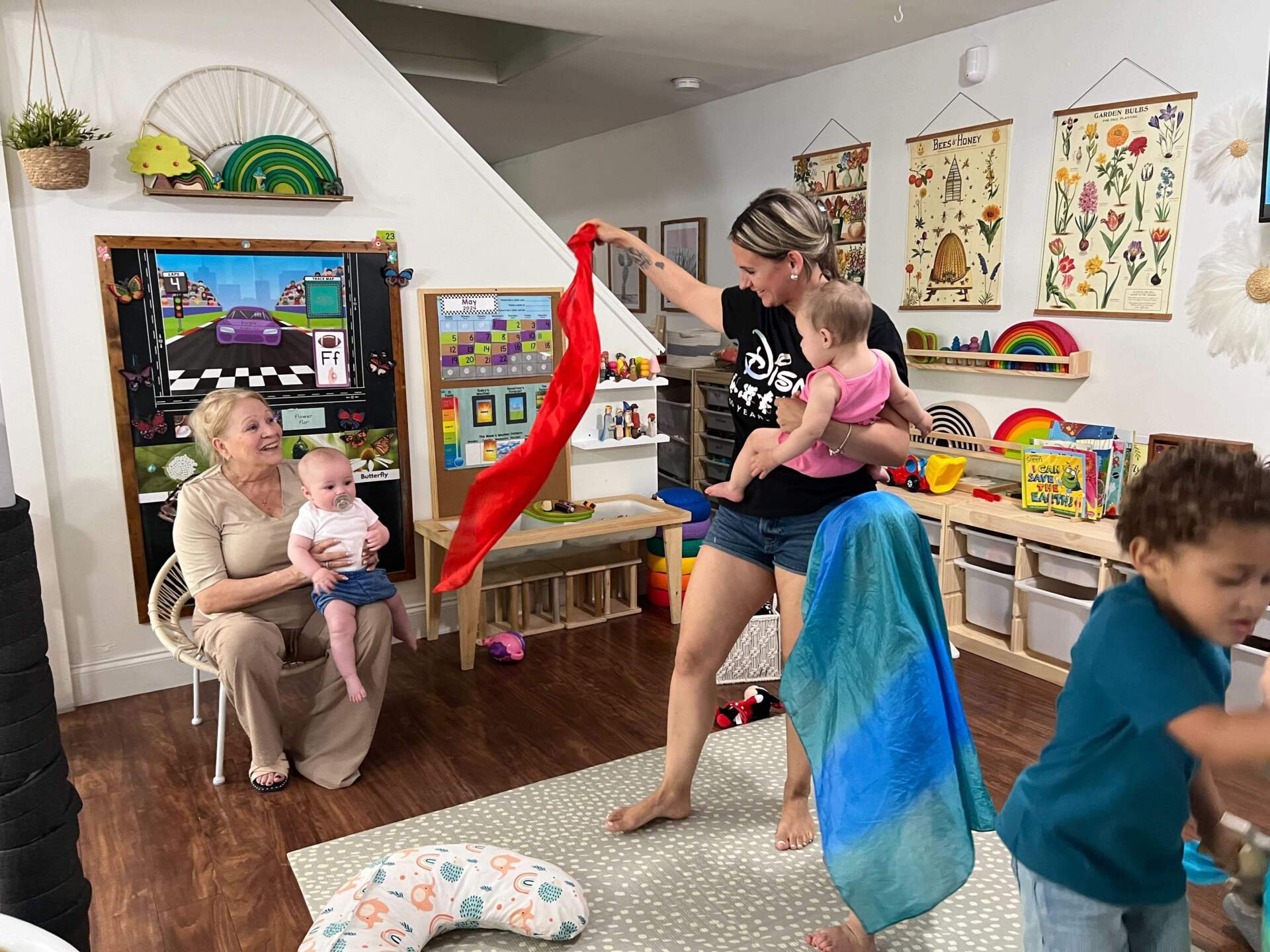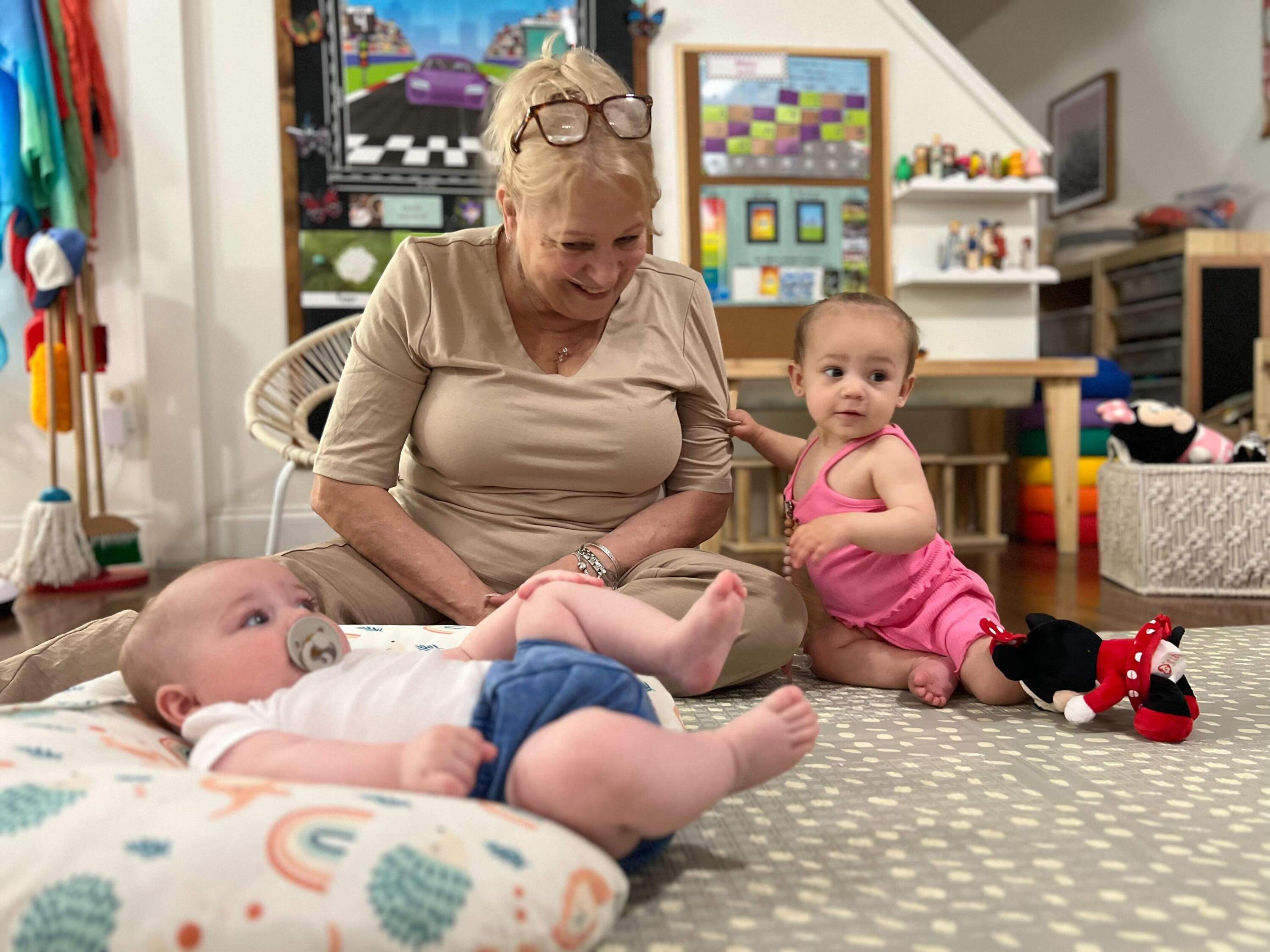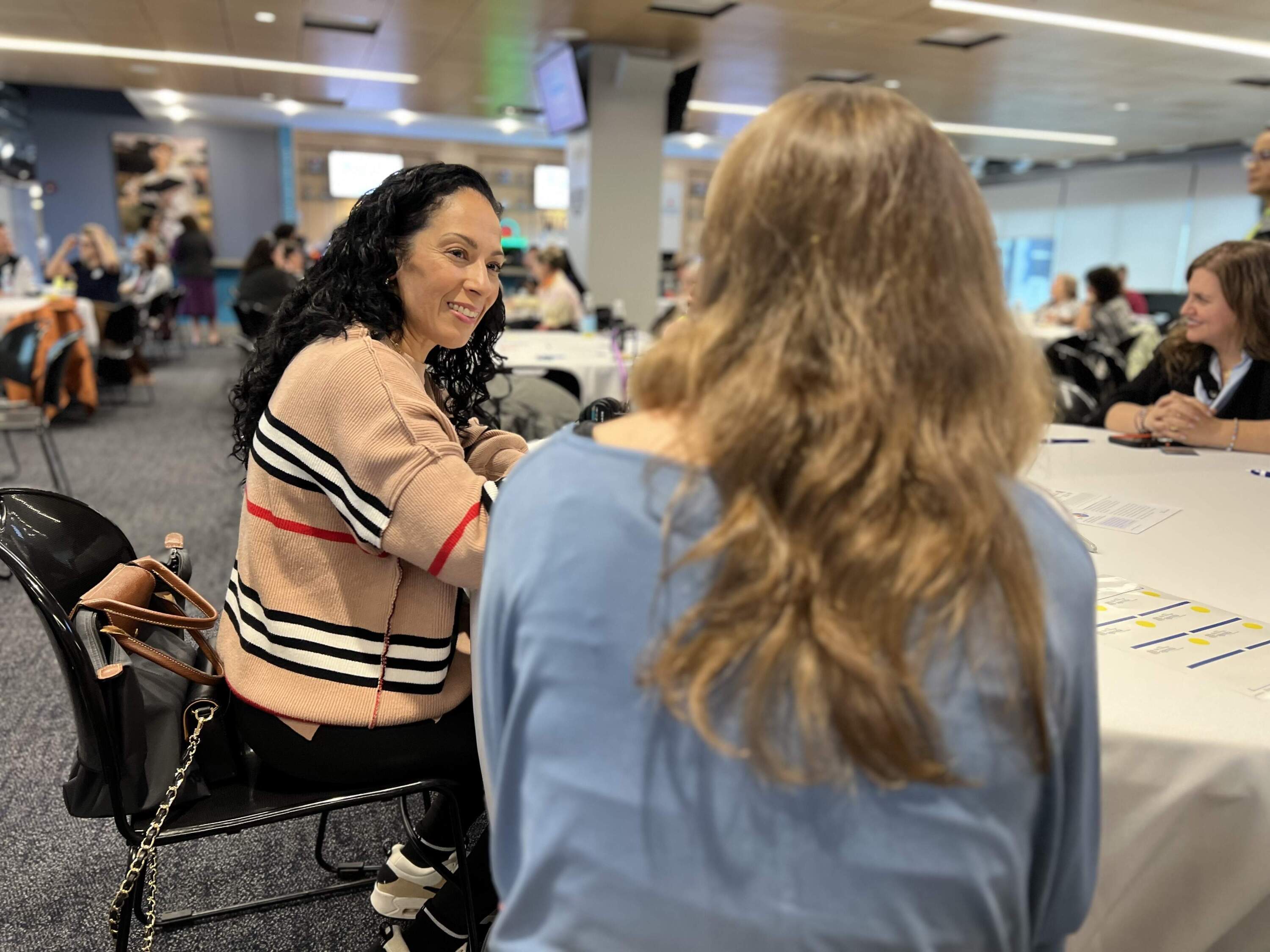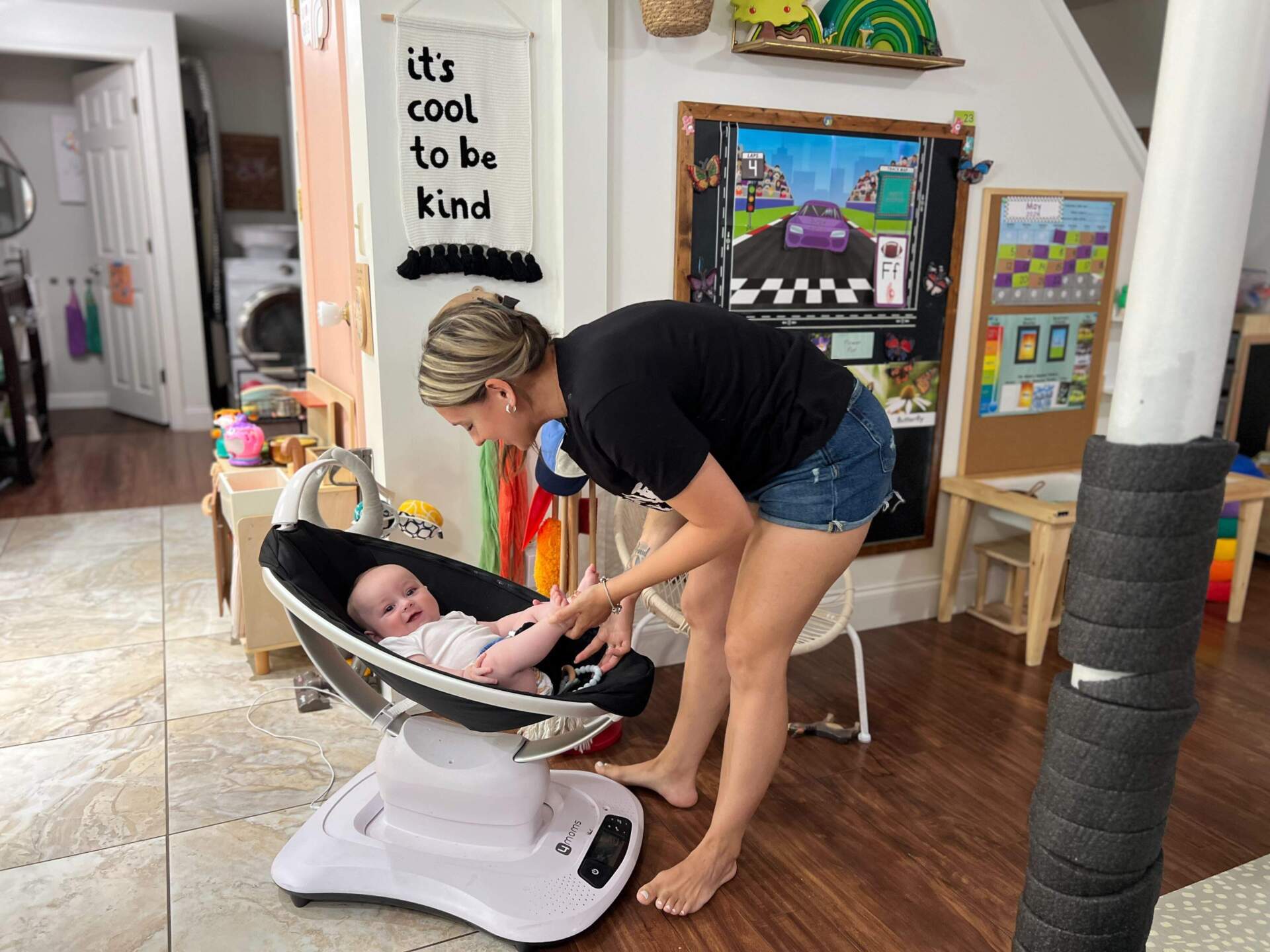
Family child care is vital, but declining. Massachusetts is reversing the trend
When working parents search for child care, one popular option is to send little ones to a center with educators and classrooms.
An alternative is family child care, which caters to a small group of children based in a provider’s home. This type of care can often be more affordable, flexible and culturally competent for families, especially in rural areas. But more of these businesses have been shutting down over the last decade due to a web of financial complexities. Now, researchers say 11 states are bucking the declining trend – including Massachusetts.
That’s where child care provider Jessica Paselli lives. She has been running her family child care business in Fitchburg for about four years, starting just before the pandemic.

It’s a colorful space with bright windows, educational posters, cubbies, a kitchen and a restroom. You might almost forget it’s a basement. On warm days, the kids spend most of their time outside.
“We have running space, we have stepping stones, we have a water table,” Paselli says. “We have lots of places where they love to look for worms and bugs.”
As a mother of three, this job saves Paselli the cost of paying someone to watch her kids. Paselli’s two youngest spend the day with her, baby Carter and two other kids under 5.
She has a new assistant helping out, too: her mom, Rosie. A common misconception, she says, is that they are just babysitters.
“I feel like a lot of people think that we just put TV on all day and that's not what I do in my house,” Paselli says. “We do meditation, we do yoga, we try to teach these kids [about] empathy, compassion.”

Regulation of businesses like Paselli’s can vary from state to state. In Massachusetts, all family child care providers are required to be licensed through the state’s Department of Early Education and Care. Some providers, like Paselli, work under an agency. Agencies match families seeking child care to family child care providers.
“It was easy. They filled up my daycare very quickly when I started and to this day,” she says. “I was new so I had people I could ask [for help].”
Other providers, like Paula Andrea Echeverri Durango, run their businesses independently.
“I have a waiting list and right now, it’s like 70 people waiting for a spot in my program,” Echeverri Durango says, “so I never saw the need to belong to an agency.”
Echeverri Durango and her assistant/husband Harold Blanco care for 10 children under 5 years old in Springfield, Massachusetts. She says many of their families are first responders who need early morning, night and weekend flexibility.
I feel like a lot of people think that we just put TV on all day and that's not what I do in my house. We do meditation, we do yoga, we try to teach these kids [about] empathy, compassion.
Jessica Paselli, child care provider
When Echeverri Durango is not caring for children, she helps mentor Spanish-speaking family child care providers through the group ECCHO - Latino.
She and other providers gathered recently to discuss policy priorities with the nonprofit Strategies for Children.

The group’s executive director, Amy O’Leary, says family child care providers in Massachusetts are doing well, even though federal COVID relief funding expired last year. That’s because the state is now providing some money.
“It was originally meant to help people keep their doors open. Now, we are seeing things that they're able to support their staff, they're not raising parent tuition, they are really using it for operating purposes,” O’ Leary says. “And this is the first time we have seen money go beyond the subsidy system to all programs. It's going to over 90% of programs in Massachusetts.”
The state has earmarked $475 million for child care providers for the 2024 fiscal year — including for those working at home or at a center.
But advocates say it hasn’t been enough to meet everyone’s needs. As more businesses open, some providers are getting lower payouts, which advocates warn will keep dwindling unless lawmakers create a better system.
Paselli and Echeverri Durango have been receiving grants of more than $1,000 per month to keep their businesses thriving.

Across the country, it’s been a dimmer reality for providers and working parents. Last year, the Department of Labor’s Women’s Bureau updated its national database on the cost of child care and found it untenable for most families.
At the same time, the number of licensed family child care homes is down 12% since 2019, according to Child Care Aware of America. The group issued a report last fall that found family child care providers and centers face similar financial woes without sustained federal investment.
These workers are making poverty-level wages. And home-based providers can also often receive lower reimbursement rates for children who use vouchers.
Child Care Aware CEO Susan Gale Perry says there are other factors affecting family child care homes, like the cost of housing, zoning laws and changing demographics.
“So we know that almost 40% of the family child care workforce is over the age of 50,” Perry says. “So we need to be examining what's behind the family child care home providers who are leaving, but we're not seeing them replaced with newer business entrepreneurs who want to go into this particular line of business.”
Perry says she’ll be watching to see if more state-level investments, in and beyond Massachusetts, will sustain this workforce.
This segment aired on June 21, 2024.
